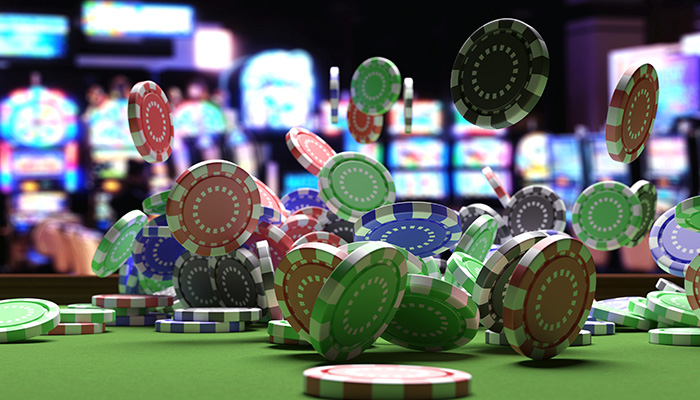
In the world of gambling, in which chance and strategy meet, a unique tapestry of beliefs unfolds—one that intertwines luck, fate, and the enigmatic nature of casino games. Casinos, bustling with excitement and anticipation, are not just spaces for placing bets; they are also arenas where superstitions thrive. From the novice player to the seasoned gambler, these mysterious practices often shape how individuals approach the games they play, believing that their actions can affect the outcome in ways that go beyond mere probability.
When players gather around roulette wheels, blackjack tables, and slot machines, the atmosphere is thick with stories of lucky charms, rituals, and codified behavior that defy logic yet provide a sense of comfort. Whether it’s wearing a specific outfit, following a particular sequence of bets, or even avoiding certain numbers, the attachment to various superstitions reflects a deep-rooted desire to manipulate the uncontrollable. This article delves into the captivating world of casino game superstitions, investigating the beliefs that simultaneously entertain and mystify those who dare to play.
Historical Roots of Superstitions
Betting activities have long been connected with an array of superstitions that can be traced to ancient societies. The beginnings of these beliefs can be associated to humanity’s innate desire to control the unpredictable outcomes connected with luck and uncertainty. In primitive civilizations, games of uncertainty were often connected to religious practices. Players would seek favor or request favor from gods, believing that their actions could affect the results in their favor. This basis laid the groundwork for the variety of superstitions that proliferated as gambling evolved over time.
During the Middle Ages, gambling became a common hobby across European nations, and with it, a colorful tapestry of superstitions developed. Players adopted various rituals and charms, believing they could change the outcome of games. The significance of numbers, in particular, began to appear in superstitions related to card games and dice. The number 7 was often considered auspicious, while various numbers carried negative connotations. These ideas mirrored the societal contexts of the time, adapting as they passed through generations and changed to emerging gaming environments.
As gambling houses appeared in the 17th century, particularly in Italy and France, the atmosphere surrounding betting became saturated in enigma. The growing openness of casino games allowed for the dissemination and growth of superstitions among players. Concepts like fortunate charms, designated seating locations, and rituals gained prevalence, creating a distinct culture within casinos. As these customs continued to thrive, they became fundamental to the character of casino games, illustrating how history and culture shape the convictions that influence how participants interact with luck.
Widespread Casino Superstitions
Superstitions surrounding casino activities are abundant and diverse, reflecting the hopes and fears of players as they participate in chance-based activities. One of the most common views is that certain numbers bring luck or bad luck. For example, the digit seven is often seen as a lucky number, frequently sought after by gamblers looking for a positive outcome. Conversely, the number thirteen is routinely considered unlucky, leading many players to avoid it during their gambling sessions.
Another frequent belief relates to rituals that gamblers believe can affect their odds. Whether blowing on dice before a throw, using a specific gesture to place a bet, or even wearing particular items of attire, many people feel that these rituals can sway luck in their favor. These rituals offer a feeling of control in an otherwise unpredictable environment, reinforcing the idea that fortune can be created through personal convictions and habits.
Finally, the ambiance and vibe of the gambling house itself contributes to myths. Many players suggest that the presence of certain icons, such as four-leaved clovers or fortunate tokens, can enhance their odds of success. Additionally, gamblers might adhere to the notion that winning streaks can be interrupted by mundane events, such as a person passing by or a spill at the table. The collective environment in a gambling house can amplify these superstitions, creating a communal culture of superstitions that goes beyond single experiences.
Impact of Superstitions on Players
Beliefs play a significant role in the mindset of gamblers, often affecting their actions and choices. Many gamblers think that luck can be manipulated through different rituals, such as wearing a lucky charm, choosing particular hues, or steering clear of particular digits. This reliance on superstitions can create a feeling of authority in an environment that is intrinsically unpredictable. Players often feel more confident and engaged when they feel that their actions could sway the result of a game in their favor.
The impact of these superstitions extends past individual players, affecting the general atmosphere inside the casino. For example, a player who holds the belief in the luck of a certain slot machine might attract a crowd, as onlookers are intrigued by their apparent success. This collective belief can amplify excitement and create a dynamic environment, leading to an captivating experience even for those who may not necessarily be believers themselves. The excitement around specific games can lead to higher participation and longer playing sessions, supporting the casino’s vibrant social scene.
In some cases, superstitions can lead to negative effects for players. Relying too heavily on rituals can result in poor gambling decisions, as some may ignore basic strategies in favor of unfounded beliefs. bakar69 Additionally, the stress to perform rituals may heighten anxiety and tension, diminishing from the enjoyment of the experience. Ultimately, while superstitions can enhance the excitement of playing casino games, they can also lead to unwise choices that overshadow the enjoyment and amusement intended in the casino experience.